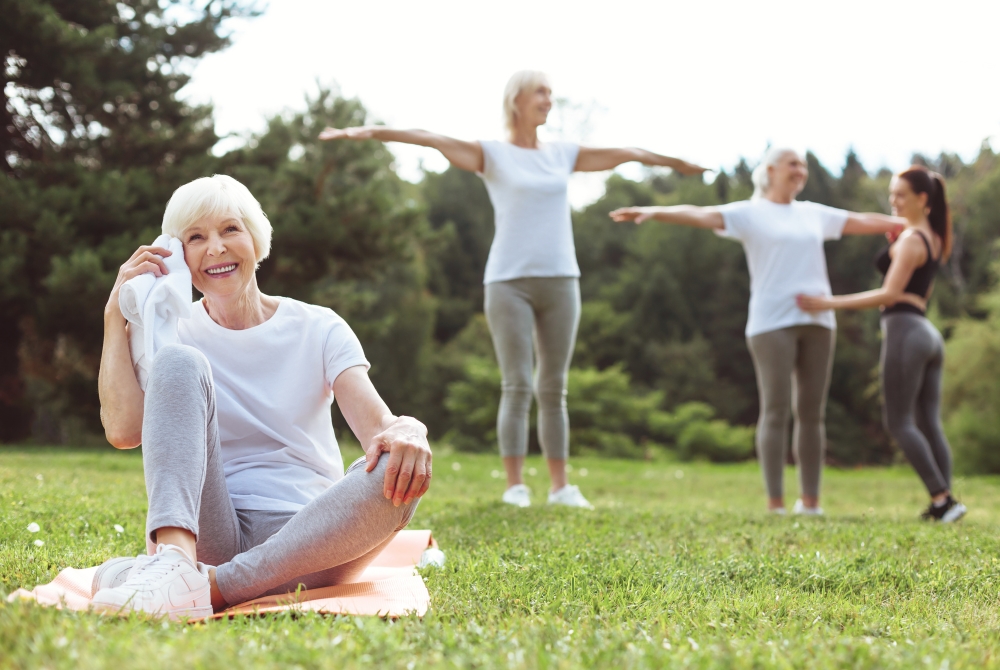As people enter their senior years, maintaining mental and physical wellness becomes paramount. This stage of life brings about changes that require adjustments in how people take care of themselves. For instance, aging sometimes limits mobility while heightening susceptibility to illnesses. Investing in health and wellness during the senior years is a complex yet rewarding pursuit, as it can transform lives and help our loved ones spend their days happy and cognitively engaged.

This comprehensive aged care guide can provide valuable insights and strategies to help navigate these changes effectively. My friend works as a psychologist is an aged care facility, and we talked a lot before I sat down to put this article together. Read this article to explore practical tips and advice on maintaining mind and body wellness during senior years, emphasizing the importance of a holistic approach to well-being.
Understanding the challenges for health and wellness during the senior years
One significant challenge affecting seniors is the decline in physical health, including increased susceptibility to chronic diseases such as arthritis, diabetes, heart disease, and osteoporosis. This decline can lead to decreased mobility, making daily activities and personal care more difficult. As a result, seniors may require assistance from caregivers or adapt their living environment to maintain independence.
Meanwhile, older adults also experience cognitive changes, including memory loss, diminished executive function, and the risk of dementia. Manifestations of cognitive decline represent another critical challenge for older people. These changes can affect a senior’s ability to manage finances, medication, and other daily tasks, leading to increased dependency. Social isolation can exacerbate cognitive decline, making it essential for seniors to engage in regular mental activities and social interaction.
Social isolation and loneliness are prevalent challenges among seniors, partly due to the loss of a spouse, family members, or friends. This isolation can lead to depression, anxiety, and a decline in physical health. Seniors may struggle to maintain social connections due to mobility issues or a lack of access to community resources, highlighting the importance of social support and engagement in promoting overall well-being.
Physical wellness: Staying active
Regular exercise is one of the most effective ways to maintain physical health. Seniors are encouraged to engage in activities that enhance cardiovascular health, flexibility, balance, and muscle strength. Options like walking, swimming, yoga, and tai chi are excellent choices that can be adapted to individual fitness levels. An aged care guide often highlights the importance of consulting with healthcare providers before starting any new exercise regimen, ensuring that the activities chosen are safe and beneficial.
Nutrition and hydration
Nutrition and hydration play pivotal roles in maintaining the health and wellness during the senior years, serving as the foundation for preventing chronic diseases, managing existing health conditions, and supporting overall physical and cognitive functions. A balanced diet of essential nutrients helps maintain muscle strength, bone density, and efficiency of the immune system. At the same time, proper hydration is crucial for kidney function and digestion and preventing urinary tract infections.
The ideal nutrition for an average senior individual should focus on a balanced diet that includes a variety of fruits and vegetables, whole grains, lean proteins, and healthy fats. This diet should be low in saturated fats, salt, and added sugars to help manage weight, control blood pressure, and reduce the risk of chronic diseases such as heart disease and diabetes.
Additionally, seniors should ensure adequate fibre intake for digestive health and calcium and vitamin D to maintain bone health, adjusting their caloric intake based on their activity level and metabolic needs.
Hydration is equally important, with seniors advised to consume at least eight glasses of water daily. However, this amount may need to be adjusted based on health conditions, activity level, and climate. Avoiding dehydrating beverages like those with high caffeine or alcohol content can also be beneficial. Given that the sensation of thirst may diminish with age, seniors should be encouraged to drink fluids regularly, even if they do not feel thirsty, to prevent dehydration and its associated risks.
Mental health and wellness during the senior years: Keeping the mind engaged

Cognitive health is just as important as physical health during senior years. Engaging in mentally stimulating activities can help maintain cognitive function and reduce the risk of dementia. Activities like reading, puzzles, learning new skills, or hobbies can keep the mind active and engaged.
My friend informs me that introspection is also a productive way to engage the mind, and process emotions. To that end, journaling is a great daily practice that’s conducive to wellbeing, and protective against cognitive decline. Giving seniors a structured format in which they can journal is a great place to start, as it removes some of the barriers associated with free form writing that people find hard at the beginning.
Social connections
Social interaction plays a vital role in mental wellness. Loneliness and isolation can lead to depression and a decline in mental health and wellness during the senior years. Seniors should strive to maintain strong connections with family and friends, participate in community activities, or join clubs that align with their interests. Many aged care guides emphasize the importance of social support networks in promoting mental and emotional well-being.
To make take this one step further, my friend informs me, aged care facilities combine social activity with time spent outdoors. Being present in nature is a great way to destress and focus on the here-and-now, which creates a productive environment in which seniors can interact and socialize.
Health care management
Regular check-ups with healthcare providers are essential for managing existing health conditions and preventing new ones. Seniors should proactively schedule appointments, manage medications, and follow medical advice. Additionally, understanding one’s health insurance coverage and accessing available senior care services can alleviate some of the stresses associated with healthcare management.
As my friend tells me, talking to patients and explaining recent developments around their health is a great way to keep them cognitively active. When people are up to speed on what’s going on, they feel more in control, and build stronger mechanisms through which they adapt to their reality, whatever that may be.
Embrace the holistic approach to health and wellness during the senior years
Maintaining mind and body wellness during your senior years is a multifaceted endeavor that requires attention to physical activity, nutrition, cognitive engagement, and social connections. By incorporating the strategies outlined in this article and utilizing resources like an aged care guide, seniors can navigate the challenges of aging with grace and enjoy a high quality of life. Embracing a holistic approach to wellness ensures that the mind and body are cared for, paving the way for a fulfilling and healthy senior life.